Home> Company News> The Versatility of Kawasaki Hydraulic Pumps: Applications and Benefits
- AddressNo.9088 SHAHEXI ROAD, NANSHAN DISTRICT,SHENZHEN,CHINA
- Factory AddressNo.9088 SHAHEXI ROAD, NANSHAN DISTRICT,SHENZHEN,CHINA
- Worktime9:00-18:00
- Phone(Working Time)0531-85064681
- Phone(Nonworking Time)0531-85064681
- Fax0531-85064681
Hydraulic pumps play a crucial role in powering a wide range of equipment across various industries. They are used to convert mechanical power into hydraulic energy, which can then be used to operate hydraulic machinery, such as excavators, cranes, and bulldozers.
One of the leading manufacturers of hydraulic pumps is Kawasaki. Kawasaki has a long history of producing high-quality hydraulic pumps that are designed to meet the demands of various industries. In this article, we will provide an overview of Kawasaki hydraulic pumps and their importance in modern machinery.
Kawasaki has been producing hydraulic pumps for over 50 years and has become a trusted name in the industry. Their pumps are known for their durability, reliability, and high performance. With a range of products available, Kawasaki offers hydraulic pumps suitable for a variety of applications.
In the following sections, we will explore the different types of Kawasaki hydraulic pumps, their applications, features and benefits, and maintenance and troubleshooting.
Types of Kawasaki Hydraulic Pumps
Kawasaki produces a wide range of hydraulic pumps, each designed for specific applications. The following are the most common types of Kawasaki hydraulic pumps:
-
Axial Piston Pumps - This type of pump uses a rotating group of pistons to create fluid flow. It's efficient and can generate high pressure, making it ideal for use in heavy-duty applications such as construction equipment.
-
Gear Pumps - Kawasaki gear pumps are known for their simplicity and durability. They have a simple design with two gears that mesh together and create a vacuum to draw in fluid. Gear pumps are commonly used in hydraulic power units and other industrial applications.
-
Radial Piston Pumps - This type of pump has multiple pistons arranged radially around a central cam. The pistons move in and out as the cam rotates, creating fluid flow. Radial piston pumps are known for their high efficiency and low noise levels, making them ideal for use in applications that require a high level of precision.
-
Vane Pumps - Kawasaki vane pumps have a simple design that uses vanes to create fluid flow. They're efficient and cost-effective, making them ideal for use in low-pressure applications such as automotive power steering systems.
-
Bent Axis Pumps - This type of pump uses a bent axis design that allows for high-pressure operation and a high power-to-weight ratio. Bent axis pumps are commonly used in mobile equipment and other applications that require high efficiency and compact size.
Each type of Kawasaki hydraulic pump has its unique features and benefits that make them suitable for different applications. Understanding the differences between the types of pumps can help you choose the right one for your specific needs.
Applications of Kawasaki Hydraulic Pumps
Kawasaki hydraulic pumps are used in a wide range of industries and applications. Some of the most common applications of these pumps include:
-
Construction: Hydraulic pumps play a critical role in heavy construction equipment such as excavators, bulldozers, and cranes. Kawasaki pumps are designed to provide the high-power output necessary to operate these machines, ensuring efficient and reliable operation on construction sites.
-
Agriculture: Hydraulic pumps are also commonly used in agricultural machinery such as tractors and combines. Kawasaki pumps are designed to provide the precise control and power necessary to operate agricultural machinery in a variety of conditions, improving productivity and efficiency.
-
Mining: Mining operations require heavy-duty equipment capable of withstanding harsh conditions and delivering high levels of power. Kawasaki pumps are designed to meet these requirements, providing reliable performance and durability in mining applications.
-
Manufacturing: Many types of manufacturing equipment require hydraulic pumps to operate, including machinery used in the production of plastics, textiles, and other materials. Kawasaki pumps are designed to provide the precision and power necessary to operate these machines efficiently and reliably.
-
Automotive: Hydraulic pumps are used in a wide range of automotive applications, including power steering systems and braking systems. Kawasaki pumps are designed to meet the rigorous demands of these applications, providing reliable and efficient performance in a variety of automotive settings.
Overall, Kawasaki hydraulic pumps are used in a variety of applications across multiple industries. The versatility and high-performance of these pumps make them a popular choice for many different types of equipment and machinery.
Features and Benefits of Kawasaki Hydraulic Pumps
Kawasaki is a leading brand in the hydraulic pump industry and offers a range of high-quality pumps with advanced features that cater to different applications. Here are some of the notable features and benefits of Kawasaki hydraulic pumps:
-
High Efficiency: Kawasaki hydraulic pumps are designed to deliver high efficiency and low power loss, leading to reduced energy consumption and increased productivity.
-
High Pressure Capacity: Kawasaki pumps can operate at high pressure levels, making them ideal for applications requiring high hydraulic pressure.
-
Smooth Operation: The advanced design of Kawasaki pumps allows for smooth and quiet operation, reducing noise and vibration levels.
-
Compact and Lightweight: Kawasaki pumps are compact and lightweight, making them easy to install and ideal for use in applications where space is limited.
-
Wide Range of Models: Kawasaki offers a wide range of hydraulic pump models to cater to different applications, including axial piston pumps, radial piston pumps, and bent axis pumps.
-
Low Maintenance: Kawasaki pumps require minimal maintenance, with extended service intervals and reduced downtime, leading to significant cost savings.
-
Robust and Durable: Kawasaki pumps are built with high-quality materials and undergo rigorous testing to ensure they are robust and durable, with a long lifespan.
-
Environmental Friendliness: Kawasaki pumps are designed with environmental sustainability in mind, with reduced noise and emissions levels and energy-saving features.
Overall, Kawasaki hydraulic pumps offer high-performance, reliability, and efficiency, making them an excellent choice for various applications in different industries.
Maintenance and Troubleshooting
Proper maintenance of Kawasaki hydraulic pumps is crucial to ensure optimal performance and longevity. Here are some best practices for maintaining Kawasaki hydraulic pumps:
-
Regular inspection and cleaning: Regular inspection of the pump and cleaning of its components is essential to prevent any dirt, debris or other contaminants from entering the pump and causing damage. It is recommended to inspect and clean the pump at least once every six months or more frequently, depending on the operating conditions.
-
Lubrication: Proper lubrication is crucial for the smooth functioning of Kawasaki hydraulic pumps. It is important to use the right type and amount of lubricant as specified by the manufacturer.
-
Filter replacement: Filters play a vital role in preventing contaminants from entering the hydraulic system. It is important to regularly inspect and replace filters to maintain optimal performance.
-
Proper storage: If a Kawasaki hydraulic pump is not being used, it should be properly stored in a clean and dry environment to prevent any damage or contamination.
-
Troubleshooting common issues: Some common issues that can arise with Kawasaki hydraulic pumps include leaks, overheating, and abnormal noise. It is important to troubleshoot these issues promptly to prevent any further damage.
In the event of any issues with the hydraulic pump, troubleshooting can be done by checking for any loose connections, worn-out components, or damaged seals. If the problem persists, it is recommended to seek assistance from a professional hydraulic technician.
Proper maintenance of Kawasaki hydraulic pumps can result in improved efficiency, reduced downtime, and increased longevity. It is crucial to adhere to the manufacturer's recommended maintenance schedule to ensure the optimal performance and reliability of the pump.

Conclusion
Kawasaki hydraulic pumps are essential components of many hydraulic systems in various industries, including construction, agriculture, and mining. These pumps have a reputation for durability, reliability, and high performance. Proper maintenance and troubleshooting techniques can help ensure their longevity and optimal performance.
Regular maintenance of Kawasaki hydraulic pumps is crucial to prevent damage, reduce the risk of failure, and maintain optimal performance. Best practices for maintenance include regular inspections, cleaning, and replacement of worn parts. In case of any issues, proper troubleshooting techniques can help identify and resolve the problem quickly.
In conclusion, Kawasaki hydraulic pumps are a versatile and reliable choice for hydraulic systems in various industries. Their features and benefits make them a popular choice among operators and maintenance professionals. By following proper maintenance and troubleshooting procedures, these pumps can operate at peak performance for many years.



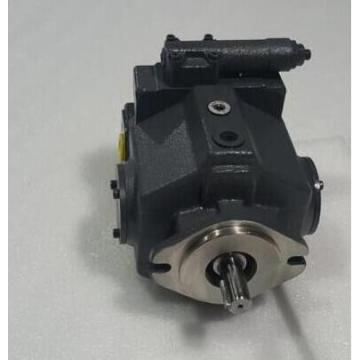 KAWASAKI K3V63DT PISTONS
KAWASAKI K3V63DT PISTONS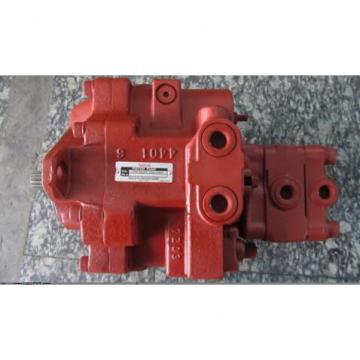 KAWASAKI K3V112DT CYLINDER BLOCK AND R.H. PLATE
KAWASAKI K3V112DT CYLINDER BLOCK AND R.H. PLATE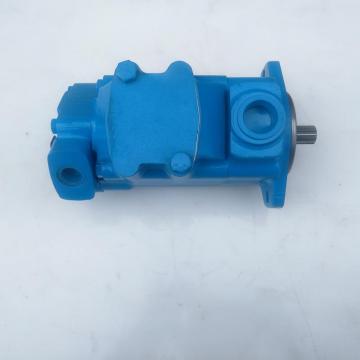 KAWASAKI K3V140DT SHOE PLATE FOR HYDRAULIC OR HYDROSTATIC EXCAVATOR
KAWASAKI K3V140DT SHOE PLATE FOR HYDRAULIC OR HYDROSTATIC EXCAVATOR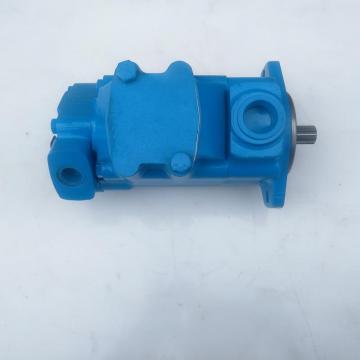 KAWASAKI K3V140DT RIGHT HAND ROTATING GROUP FOR HYDRAULIC EXCAVATOR
KAWASAKI K3V140DT RIGHT HAND ROTATING GROUP FOR HYDRAULIC EXCAVATOR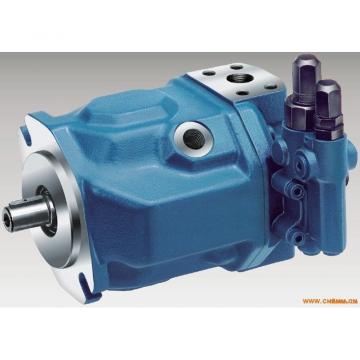 KAWASAKI K3V63DT CYLINDER BLOCK AND L.H. PLATE FOR HYDRAULIC EXCAVATOR
KAWASAKI K3V63DT CYLINDER BLOCK AND L.H. PLATE FOR HYDRAULIC EXCAVATOR